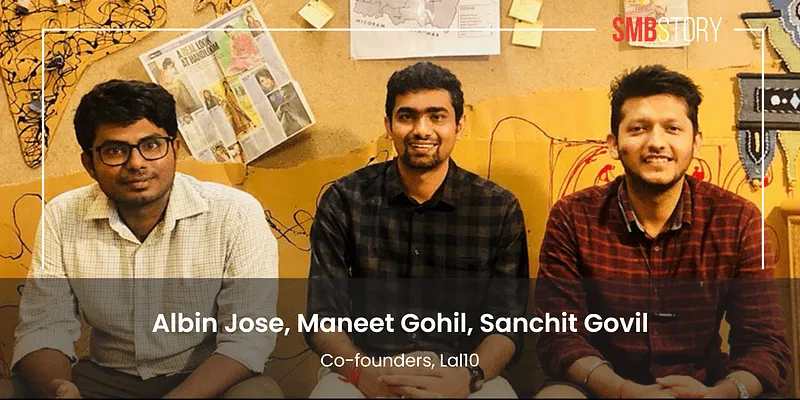These platforms are digitising India’s textile industry and connecting artisans with international buyers
COVID-19 has accelerated the pace of digitisation in several industries, including textiles. Meet three platforms that are digitising the handloom and handicrafts sector, and weeding out the middleman.
The Indian textile and apparel industry is estimated to be worth $75 billion in the current year, according to a report by Wazir Advisors. Additionally, the market fell by 30 percent from $ 106 billion in 2019-20 and is expected to recover and grow at a CAGR of 10 percent to reach $ 190 billion by 2025-26.
Like several other sectors, the textiles sector (including handloom and handicrafts segment) came to a grinding halt when the COVID-19 pandemic struck.
One of the biggest lessons for this sector has been to embrace digitisation in order to move forward in the post-COVID-19 world. However, making the shift online is another challenge that persists.
The biggest advantage and outcome of digitisation has been the elimination of middlemen that has not just increased the income of the people involved in this industry but also given a face to the original creators.
This week, SMBStory lists three platforms that are digitising the handloom and handicrafts sector.
Lal10

Noida-based Lal10 was founded in 2017 by Maneet Gohil, Sanchit Govil, and Albin Jose. It is an online wholesale marketplace for rural micro, small and medium enterprises (MSMEs) in India. From apparel, handbags, to lampshades, it has a total of 30,000 stock-keeping units (SKUs).
The name Lal10, pronounced lalten (meaning lantern), is derived from the company’s mission to “bring light to the artisans”.
In March 2020, raised a seed round from Sorenson Impact from Utah and a few angel investors. The brand has connected weavers and artisans with labels, including Zara, Anita Dongre, Toast, Wills Lifestyle, FabIndia, Four Seasons, and Taneira.
Today, the platform is working with 1,500 artisans across the country and helping them connect with retailers in India and 19 countries.
In a conversation with SMBStory, Maneet talks about the company’s effort in digitising and organising the sector and how COVID-19 brought changes within the organisation.
Sowtex

Delhi-based , a B2B sourcing platform for textile buyers and sellers, was founded by Sonil Jain.
Sowtex offers 46 categories of items on its platform, including fabrics, motifs, laces, badges, apparel machines, testing equipment, neck patches, buttons, threads, interlinings, yarns, zippers, and much more. It also helps facilitate international transactions, including in countries like Bangladesh, Sri Lanka, Indonesia, and Korea.
The company claims to have facilitated business worth Rs 20 crore since its inception in 2017. The intention behind starting Sowtex was to bring the industry closer and eliminate the role of middlemen, which it has largely accomplished. The seller gets a good price for his produce whereas the buyer can get a price which is 5 to 25 percent cheaper, Sonil claims.
From 5,000 users before the pandemic, Sowtex today has a reach of more than 14,500 active users (in total since its inception), which it plans to scale up to 1 lakh active users in the next 12-18 months.
Yarn Bazaar

Mumbai-based is another company that is digitising the yarn industry. Since its inception, the company claims to have sold yarn worth Rs 220 crore.
The business model functions through a website, and Android and IOS mobile applications. It is a holistic one-stop platform for discovering good quality yarn, getting the best price, and vendors.
Both buyers and sellers have to create their profiles on the platform. The buyer can post requirements, compare prices from a list of sellers, and place orders accordingly. The buyer can also request for a sample of the yarn and order for a test report to keep track of the quality of the yarn. When both the parties are satisfied, the transaction happens through the platform.
The Yarn Bazaar charges a convenience fee from the transactions, which it did not reveal. Today, it has over 5,500 users have registered on the platform. Recently, the company also launched a content platform called Texpreneurs through which it interacts with textile entrepreneurs and industry stakeholders and solve the bottlenecks they face.
Edited by Teja Lele









